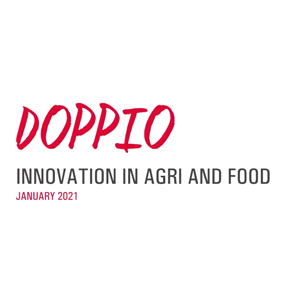Back in March we were all confronted with a possible, yet unexpected challenge that affected us, both as social beings and members of the global workforce. There were innumerable ways in which our lives were impacted as our personal and work lives merged, whether we lived on our own or with our families.
For those of us who have been used to intensive travel as part of our work or personal life, 2020 has added another variable to the journey. Societies and economies have traveled forward in time as adoption of digital means of communication and logistics management took a leap that otherwise may have taken years. Replacing work travel with video conferences, embracing e-commerce even for those reluctant to do so or unfamiliar with it, adapting to home-schooling at all education levels or adapting to remote healthcare provision, were just some of the aspects greatly affected by the restrictions of movement.
The impact on day to day lives has been different depending on how digitally literate we were as well as our willingness and availability to travel, before the crisis. Whether we felt instants or years have passed in a matter of weeks, as a result of what felt like a sudden “trip” onboard a time-machine, for most of us these months have been filled with uncertainty.
And despite all this, the new scenario has also brought learnings and opportunities to grow as individuals and professionals. We have had to find ways to make childcare compatible with work, cope with being forcibly separated from loved ones, deal with the disease directly or in our communities, all while postponing or cancelling personal and professional plans.
The restrictions imposed varied across countries, but regardless of where we are based, we have been faced with the need to deliver quality work from home and to accelerate our adoption of digital tools. The latter of these may have varied in difficulty, depending on our own set-up and that of our colleagues and our clients.
Aiming to understand the effects of this new way of working on our community of independent professionals, we conducted a survey in the early days of the pandemic. Overall, and from the outset, our community seemed to be well prepared for remote delivery. Two factors may have contributed to this: the adaptability required by the nature of the independent set-up and the fact that most of us were already familiar with remote work at least part time, making it easier to scale up when home office became the norm.
As we continue to see global companies advocate for a new way of work (wherever, whenever and however), we are taking the opportunity to share not just the highlights of the survey, but our observations based on close interactions with independent professionals working with our clients either stand alone or as part of teams.
The results show a significant dispersion in the preparation for, adaptation to and expectations resulting from the rapid and sudden changes since the first restrictions were imposed and the survey was conducted. a-connect has delivered way more than 100’000 hours of remote work since March 2020. Throughout 2020, we continued to deliver successive waves of a post-merger global entity integration. Since March, one consultant in our Asian network has been engaged in a project in Germany while based in Taiwan due to travel restrictions. Since late September we have been part of a transformation program for a German client through a remote team of 10 consultants across 7 different countries, 5 of whom were new to the client.
In addition, although not conclusive, the input received provided us with guidance on emerging topics to follow. Building on the experience of the last months, our main observations are the following:
- As a community, we have adapted faster to the new way of delivery. While almost a quarter of respondents felt that their set up could be improved and 10% perceived strong limitations, we have observed that over time, those who struggled in the early days have caught up and adapted. This is a result of gradually gaining confidence as they delivered work remotely or of getting trained in skills or technology seen as particularly challenging (e.g. tools and skills for virtual workshop facilitation).
- Successful project delivery continued agnostic of location. Clients have been increasingly open to considering talent for its face value. Professionals have embraced the challenge, beyond the consideration of being on site that traditionally played an important role at both ends.
We have experienced, across the board, that the challenges of wherever, whenever and however seem to be easier to overcome than those of whoever as building new relationships remains a key area of concern. Our respondents perceived trust-building as harder in the online world and we have experienced it repeatedly when introducing and onboarding new team members and engaging with first-time clients.
- Building new relationships continues to be a barrier for many of us to overcome. Both, extroverts (2 out of 3 of our respondents identified themselves as such) and introverts have observed reduced communication effectiveness when working remotely. Challenges remain present as we face ongoing communication difficulties (beyond technology) and the lack of opportunities to interact informally with teams and clients.
- On the bright side, the extended time working remotely has proven that we can sustain strong client relationships while being offsite. Although responses indicated the presence of some early struggles, most of us managed this area relatively well, particularly in cases where we had worked on site at a given client or had met client teams in person.
- As we all adopt new tools and develop capabilities, we have seen the majority of consultants on our projects (many of them introverts) finding new ways of working more effectively with their clients and shining beyond expectations while delivering remotely.
80% of our respondents strongly agreed that remote work would become the norm going forward and no matter how we have experienced these months, there is no doubt that the impact of the changes on our ways of working will be long standing. In several cases, these changes were welcome; in fact, 50% of respondents would like remote work to become the norm after the crisis.
It is evident that time saved on travel and commuting, and the fact that virtual meetings/workshops tend to be much shorter and crisper, has led to significant productivity gains. However, challenges remain to be addressed as new lockdowns and new restrictive measures are put in place, particularly in locations where home schooling is reinstated.
- Training and upskilling remain of key importance even for those who felt prepared to work in a world with more digital adoption. Over 60% of our respondents believed that digital adoption would continue to highlight the importance of upskilling in the areas of virtual project delivery, workshop facilitation and remote team building alongside more technical skills such as data analysis and data visualization tool mastery.
- Beyond the current concerns, identifying relevant, medium-term topics of training and finding the right training provider are not straightforward for independent professionals as remote delivery is likely to continue in the coming months.
- In our experience and despite the recognized importance of this topic, dedicating enough quality time to develop relevant new skills and knowledge adds to the trade-offs we will need to make. Renewed efforts will be needed to balance our time between longer working hours and personal time, as digital fatigue becomes more apparent.
Over 50% of respondents confirmed their belief that firms will increasingly rely on independent consultants for project-based work and we continue to view the evolution of independent consulting work with cautious optimism, keeping an eye on the continual need to be in good health – physical and mental – and in constant renewal mode.
- Less than 10% of respondents appeared likely to rethink their career as independent professionals. During these months we have observed the sustained trust of our clients (firms and independent professionals) and together with our network we have created a solid track record in our ability to deliver client impact through individual work as well as in team settings.
- The ability to market skills, willingness and aptitude to deliver distinctive work remotely, desire to build a stronger community and need to proactively manage financial security, are even more important than before the crisis and will need to be proactively addressed.
Beyond the immediate challenges and as we get more familiar with the changes brought by the restrictions of these months, we are convinced that proactively developing a repurposed and hopefully improved delivery model will be of utmost importance to capitalize on the learning that we have gained through our experience onboard the time-machine.
- While we expect diverse patterns in our return to on-site work, we will need to collectively work out functioning hybrid models (online and offline) with variances by geography and specific client situations. In doing so, we must take stock of the learnings of this period, aiming to make the most of the productivity gains driven by remote work and balancing them with the advantages of being present at our clients when needed.
- Beyond our individual aspirations, we should leverage these learnings to produce more sustainable and healthier ways of working for ourselves, our society, and our planet.
- For all of us at-connect, our purpose resonates louder and stronger than ever and we continue to be committed to “deliver excellence to make the world advance”.
We are together in this journey and we will continue to do our best to support our community by building on our strengths. At the same time, it will remain fundamental to stay a step ahead of anticipated changes and invest in permanent professional renewal, both in technology as well as content.





